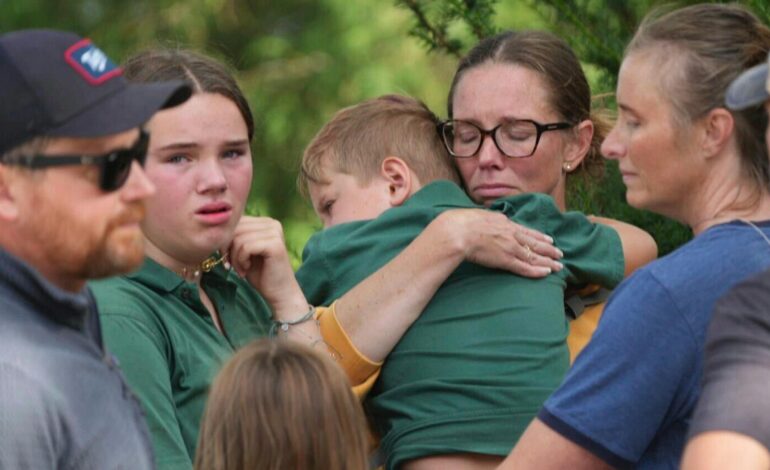Gun Violence Rocks Minneapolis: Calls for National Guard Deployment

Minneapolis faced a devastating incident on March 13, 2024, when a gunman opened fire at Annunciation Church, resulting in the tragic deaths of two children, aged 8 and 10, and injuries to at least 17 others. The shooter reportedly died from a self-inflicted gunshot wound at the scene. In the aftermath, a young boy was overheard expressing his fear to his father, saying, “I don’t feel safe.” This incident has intensified discussions surrounding public safety and the potential deployment of the National Guard in urban areas.
Hours before the church shooting, violence erupted across the city with three separate shootings leading to fatalities, including one near a high school where six additional individuals were injured. These acts of sudden violence contribute to a growing sense of insecurity in American cities, prompting some citizens to support measures such as the proposed National Guard deployments by President Donald Trump in cities like Chicago and Los Angeles.
Polling data from the AP-NORC Center indicates that 81% of Americans consider crime in large cities a “major problem.” While there is some dissatisfaction with Trump’s management of economic and immigration issues, his tough-on-crime rhetoric resonates with many who prioritize safety. Yet, a significant number of Americans express discomfort with the idea of military presence on civilian streets, highlighting a complex tension between the desire for security and the implications of militarization.
Historically, both political parties have embraced a “tough on crime” narrative. From Richard Nixon in 1968 to Bill Clinton in 1992, this approach has shaped public discourse. Notably, Clinton’s policies led to significant prison and police funding increases, which had long-lasting consequences. Despite the perception of rising crime, statistics reveal that, as of 2016, the national crime rate had fallen to about half of its peak in 1991. Recent data from the FBI indicates a continuing decline in crime rates in cities such as Chicago, Washington, and Los Angeles.
Perception plays a crucial role in public opinion. The recent surge in violence, particularly incidents like those in Minneapolis, amplifies fears and makes calls for military intervention more appealing. However, history warns against such measures. In 1970, National Guard troops at Kent State University fired on student protesters, resulting in four deaths and nine injuries. The presence of soldiers in civilian areas can signify occupation rather than partnership, fostering distrust between communities and government.
JB Pritzker, the Governor of Illinois, emphasized this point, stating, “Members of the National Guard are not trained to serve as law enforcement. They are trained for the battlefield, and they’re good at it. They did not sign up for the National Guard to fight crime.” The deployment of the Guard may provide temporary reassurance, but it risks escalating tensions and creating more significant divides.
The symbolism of military involvement in civilian life is a matter of concern. While Clinton’s policies aimed to restore community safety, Trump’s rhetoric emphasizes control, exemplified by imagery of armored vehicles and soldiers on the streets. The urgent desire for safety following tragedies like those in Minneapolis is understandable, yet the implications of militarization must be examined closely.
The recent violence, including the political assassination of former Minnesota House Speaker Melissa Hortman and her husband, adds urgency to the discussion about federal intervention. While some residents may feel safer with a military presence, the long-term effects on trust and democratic values are profound.
As the nation grapples with these difficult questions, it is essential to consider the balance between safety and freedom. The challenge lies in resisting the easy politics of fear, particularly in times of crisis. A society must strive for safety that reinforces democratic principles rather than undermines them.






